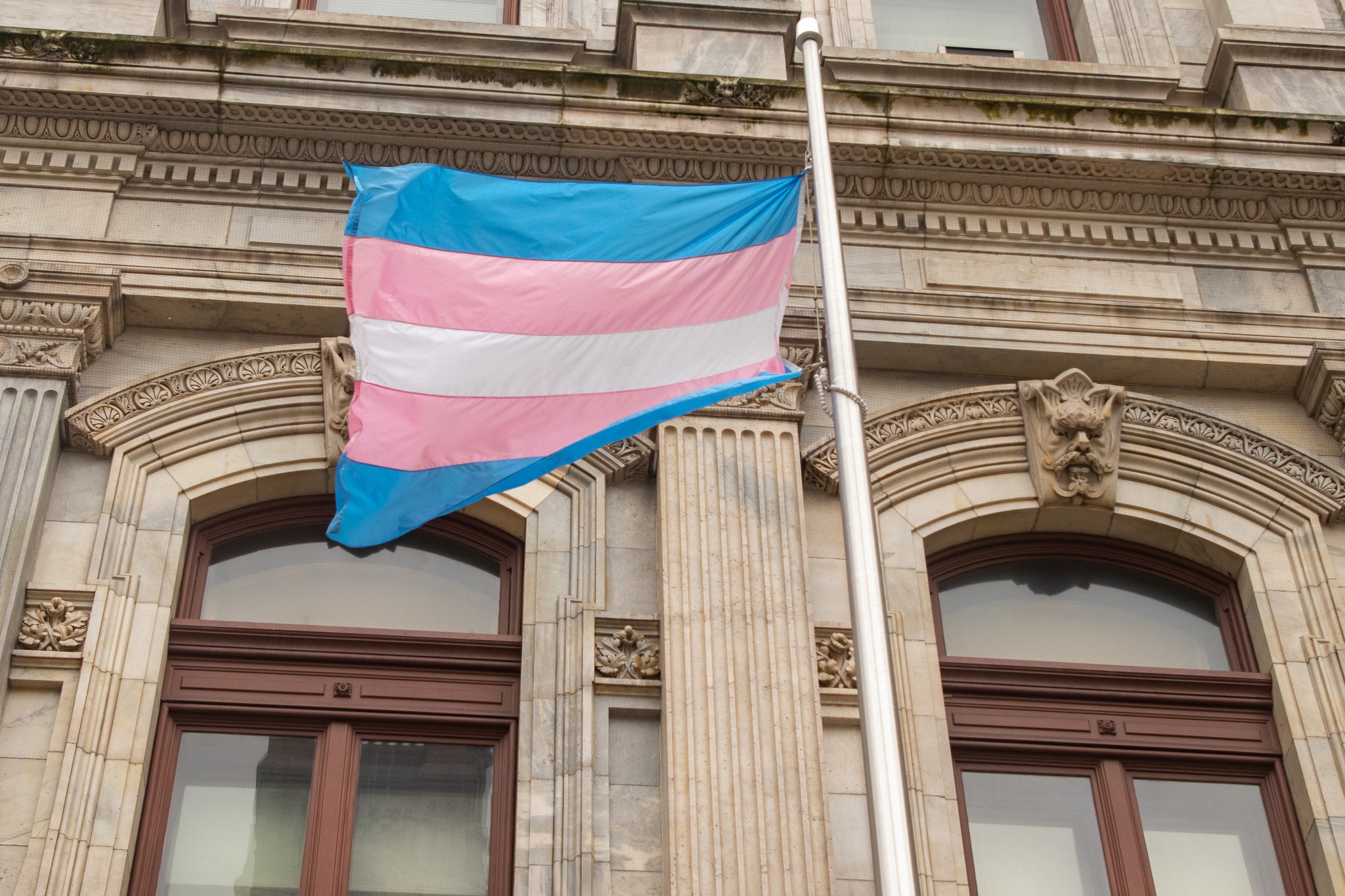
The City of Philadelphia unveils new guidelines for supporting transitioning employees
The guidelines are based on information gathered by the Office of LGBT Affairs.
Ahead of Transgender Day of Visibility on March 31st, Celena Morrison, Director of the Office of LGBT Affairs and Erik Larson, Deputy Director of the Office of LGBT Affairs, spoke to AL DÍA News about the City of Philadelphia’s new guidelines for supporting transitioning employees.
Morrison came to the office of LGBT Affairs with a nonprofit background. Most notably, she worked as a communication specialist at Mazzoni Center, an organization that provides LGBT-focused health and wellness services. It was through partnership between the City and organizations, like Mazzoni Center, that Morrison got her current position.
Larson has been the deputy director for two years. He started this role while completing his graduate studies at the University of Pennsylvania, staying in after graduating. Larson also has a nonprofit and fine arts background.
Morrison defines her office’s mission as, “to foster equal working and living conditions for all of our LGBTQ+ Philadelphians.”
“And we also advocate for LGBTQ issues in different areas of city government, in all areas of city government,” Morrison added.
This includes working on policies, partnering with the community, and hosting pride events.
Developing the guidelines
The office decided to develop “Supporting Transitioning Employees: Guidelines for Best Practices” after identifying some of their own concerns and receiving some from city employees.
These employees include both transitioning employees who were facing challenges around transitioning in the workplace and managers and supervisors who have had challenges around supporting their transitioning employees. They also found that the current guidance that was available was inconsistent.
The guidelines took one year to develop.
“We started to review some of the work being done in other cities, based some on our own experiences, and gather[ed] what existed already for the city of Philadelphia,” Morrison explained.
She continued, “We set out to use whatever we needed from the materials that already existed and also insert specific policies that were specific to what the city of Philadelphia needed, so we could develop the most comprehensive set of guidelines.”
What the guidelines say
The guide opens with definitions of transgender and transitioning.
The guide defines transgender as “a broad umbrella term for people whose gender identity, expression or behavior is different from those typically associated with their assigned sex at birth. This includes people who socially and medically transition, as well as others who simply feel their assigned sex at birth does not reflect their true gender.”
It defines transitioning as “a process of making changes related to one’s gender identity and/or gender expression. A person who is transitioning may make physical and social changes to reflect their gender identity. For example, they may choose a new name, go by different pronouns, and/or wear different styles of clothing. However, transitioning looks different for each individual, and these steps are not required. Respecting all transgender people is vital regardless of what their transition process looks like.”
It also includes a dos and don’ts list and talks about how to handle initial conversations, restrooms, uniforms/dress code, and declared name/legal name.
One piece of the guide that is specific to Philadelphia is the declared name/legal name section. It outlines the definitions of legal name (also known as a “dead name”) and declared name.
The guide states that the declared name and gender marker should be used on all permitted documentation. For example, the person’s email or access badge. Employees can fill out a form to use their declared name and work with an HR representative to select where to use it.
The only places that an employer should use an employee’s legal name is on records where names have to match like payroll.
“I will say something that is useful that we’ve found in this process, both as we were developing these guidelines, but also now that they are officially live and rolled out, is that we’ve seen the benefit of these policies affecting beyond our LGBT+ city employees,” said Larson.
RELATED CONTENT
This includes someone named David who goes by Dave, or married people who are still known professionally as their previous surname.
“I think [it] just goes to show that proactive policy making can really be valuable for a wide audience. And we’re really pleased to see that,” he added.
These guidelines fall under city discrimination protections that are already in place. If employers refuse to abide by the guidelines, they will be held accountable by these protections.
Larson talked about how they are working toward getting all city employees to know about the guidelines.
“We’re really making sure that these guidelines are made available to all of our employees… We want to make sure that this guide is not something that is hidden in a file that only HR managers access; we want to make sure that all employees are aware that this exists and what their rights are and how they can access this guidance,” said Larson.
He continued, “Because like we said this guide isn’t solely for managers and supervisors, it’s also probably first and foremost, for the employees who are transitioning on the job to make sure they have a safe and affirming experience in the workplace.”
In addition to the guidelines being on the city’s intranet site, there is a public facing version that anyone, including outside employers who might want to apply the guidelines themselves, can look at them.
What the future holds
Morrison explained that they are currently working with many departments, such as the fire department, on getting gender neutral bathroom modifications. This means changing a single stall male or female bathroom into a gender neutral bathroom.
These modifications can be something as simple as putting a hook on the door for someone to hang their bag or coat, which helps make these bathrooms a more equitable space.
“So there’s a lot of siloed work that’s happening within the city. And a lot of that work isn’t always specific to our transitioning employees or the LGBTQ community,” said Morrison.
She continued, “So it's really important that we keep all those little facets of the work that we do going and have our office as a part of these conversations to make sure that even if it isn’t LGBTQ specific, that we’re considering all our workforce.”
She added that they work closely with the Mayor’s Office for People with Disabilities to have both offices included in these conversations because their presence makes a difference when creating equitable spaces.
To mark Transgender Day of Visibility the Office of LGBT Affairs is hosting a flag raising event that will feature speakers from Philly’s LGBTQ+ community. The event begins at noon on March 31st at the City Hall North Apron Flag Poles.











LEAVE A COMMENT: